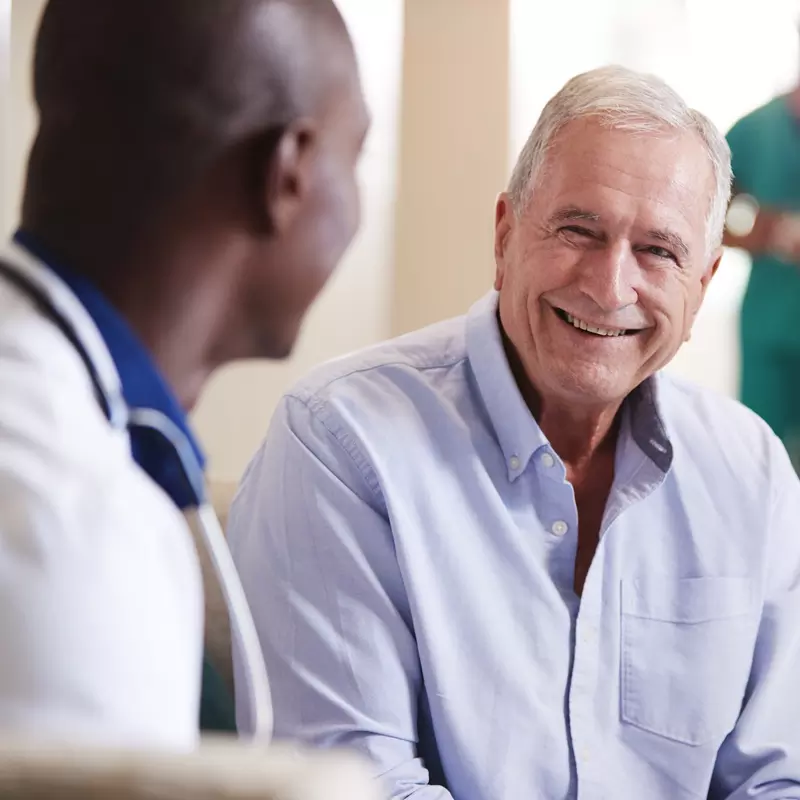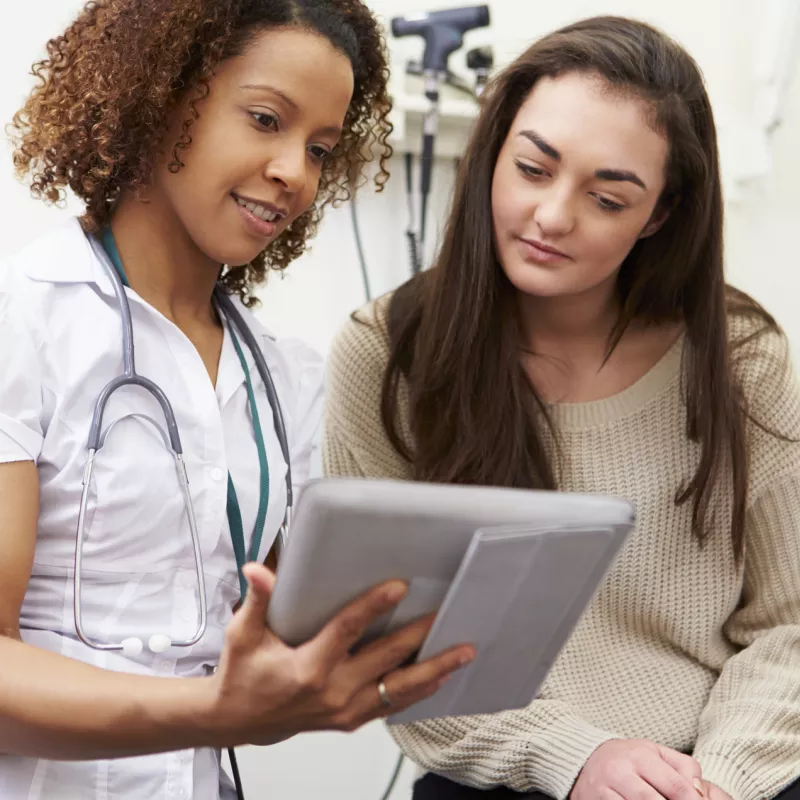Be Informed, Feel Empowered Understanding Skin Cancer
At AdventHealth Cancer Institute Shawnee Mission, we encourage prevention — seeing your dermatologist for any concerns — and will be here for you with expert-level care if you face skin cancer.
While only 1% of skin cancers are melanomas, they’re the deadliest because they can spread throughout the body and metastasize. Other, less common, skin cancers include Merkel cell carcinoma, Kaposi sarcoma, cutaneous lymphoma and skin adnexal tumors. These account for less than 1% of all skin cancer types.
- Signs and Symptoms
-
Warning signs of skin cancer include:
- Changes in a mole or skin lesion (shape, size or color)
- New growth on the skin
- Sores that don’t heal
- Screenings
-
If you have a family history of melanoma or have needed melanoma treatment in the past, it’s important to have regular screenings with a dermatologist.
Screening for skin cancer may include a skin exam and biopsy.Skin Exam
Skin exams are quick and non-invasive. Your dermatologist examines the surface of your face, head and body for any new or abnormal changes, including any large, dark, misshapen or raised spots.Skin Biopsy
A skin biopsy involves removing all or part of any abnormal-looking growth from the skin, so doctors can view it under a microscope to check for the presence of cancer. - Talking With Your Doctor
-
Your dermatologist may refer you to a surgical, medical or radiation oncologist for treatment. Some questions you might consider asking your care team include:
- Are my family members at risk for skin cancer?
- How far has my melanoma spread within or beneath the skin?
- Should I take special precautions to avoid sun exposure?
- What are the chances of my cancer growing or recurring?
- Causes and Risk Factors
-
Left untreated, damaged skin cells can trigger mutations that lead the cells to multiply rapidly and form malignant tumors.
Some causes of skin cancer are:- Excessive exposure to sunlight or ultraviolet rays
- Exposure to certain chemicals and radiation
- Previous skin cancer
- Tanning beds
You may have an increased risk of getting skin cancer if you have:
- Fair skin
- Family history of skin cancer
- History of sunburns
- Moles and other precancerous skin lesions
- Signs of a weakened immune system
- Prevention
-
While you can’t stay out of the sun entirely, the good news is there are a few simple ways to lower your chances of skin cancer, including:
- Applying sunscreen with SPF 30 or higher
- Avoiding intentional tanning
- Seeking shade on sunny days
- Wearing protective clothing and hats
- Stages of Skin Cancer
-
To help you understand your condition better and to empower physicians to communicate across care teams, melanomas (not basal cell carcinomas) are categorized by stage.
Your cancer care team can identify and explain the skin cancer stages, if applicable, and your treatment options.
- Treatment Options
-
When diagnosed and treated early, melanoma can be curable. But left alone, melanoma may advance and spread to other parts of the body, making it hard to treat and potentially fatal. Your doctor will talk with you about which treatment option is best.
Cryosurgery
During this procedure, your surgeon will freeze and destroy the cancerous tissue with liquid nitrogen, using a cotton-tipped applicator or spray bottle. Since there are no incisions (which means no bleeding) or anesthesia, this minimally invasive approach makes for a faster, easier recovery.Excisional Surgery
This approach involves your surgeon removing the entire tumor and surrounding normal skin. Then, by examining the removed tissue in a lab, your care team will verify that all cancer has been removed.Mohs Micrographic Surgery
This surgical approach allows your surgeon to remove the visible tumor and surrounding tissue with a scalpel, which will later be sectioned, frozen and examined under a microscope.Other methods can include:
- Electrosurgery
- Laser surgery
- Photodynamic therapy
- Radiation
- Topical medications
Skin Cancer Care We’re Here for You
We’re here for every step of your journey to care for your whole-person health through a variety of support programs.
Cancer Rehabilitation
We offer one-on-one treatment with a licensed physical therapist with special training in oncology rehabilitation.
Care Navigator
You’ll have help during every step of treatment with a caring partner to guide you.
Survivorship
You can overcome cancer, and we want to give you hope as well as healing throughout your journey.

Expert Care, Compassionate Support Skin Cancer Care You Can Count On
You’ve got this, because you’ve got us. If your dermatologist recommends comprehensive skin cancer care, we’re here to help.




